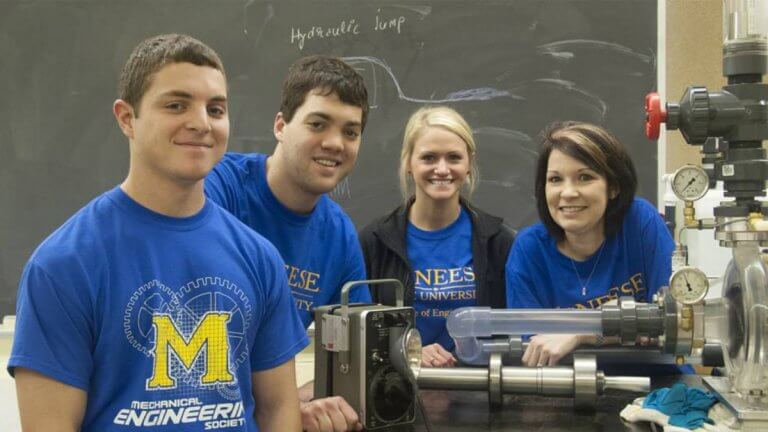
“The multiple issues that we face in the 21st century revolve around aspects of STEM. These issues can only be resolved with a STEM educated workforce.”
On April 28, 2016, America’s top employers came together with international thought leaders of industry at the Global STEM Talent Summit in Washington DC. The aim of this annual conference – which brings world-leading organizations like STEMConnector together with industry, NGOs, universities and the wider public sector – is to discuss global strategies for filling millions of vacant positions.
“The global STEM Talent Summit is an important piece of the global puzzle of identifying talent gaps and addressing them strategically,” said Nina Vaca, Chairman and CEO of Pinnacle Group, a workforce solutions provider. “We who are in the sectors that most depend on STEM talent have an accountability to be proactive in developing tomorrow’s innovators and leaders.”
Every sector within the STEM category (Science, Technology, Engineering and Mathematics) is preparing to tackle a universal shortage of talent in its own unique way. The medical sphere, for example, must train seven million doctors, nurses and other health professionals in order to address its current shortfall, according the World Health Organization, increasing the number of global healthcare workers to 12.9 million by 2035.
Symantec, on the other hand, the leading global technology company based in the U.S., forecasts that while six million cyber security jobs will be created by 2019, 1.5 million of these positions will remain unfilled by 2024 if the talent shortage is not addressed.
Reports state that in the past 10 years alone, STEM-related occupations have swelled three times as fast as non-STEM related fields, meaning that the need to develop and retain the sector’s top talent in industry is more crucial than ever before.
“Business leaders have set the tone by ramping up investments and engagement in STEM education in order to prepare the next generation of skilled talent necessary to drive innovation and economic growth,” said Edie Fraser, Chief Executive Officer at STEMConnector. “Now we need to shift our focus of turning investments in education into a sustainable, long-term talent pool.”
The U.S. in particular has implemented a number of comprehensive strategies to attract the world’s top STEM talent. The Optional Practical Training (OPT) Extension for STEM students announced in March this year is one such successful strategy.
![]()
Image courtesy of McNeese State University.
There are a number of available visa categories for students heading to the U.S., ranging from J to M. The majority of international students enrolled in the U.S. will have been granted permission to study in the region under the F-1 visa program – a permit that allows them to work after graduation under the OPT extension.
The OPT extension is defined as “a period in which undergraduate or graduate students with F-1 status who have completed or have been pursuing their degrees for more than nine months are permitted by the UCIS to work towards getting practical training to complement their field of studies.”
In response to the rising STEM shortage, the U.S. Department of Homeland Security published a final rule in March this year stating that foreign-born STEM graduates from U.S. institutions may apply for a 24-month extension of their post-completion OPT. Essentially, this means that international students graduating from STEM fields in the USA can remain in the country to pursue valuable work experience for up to 36 months.
This means there has never been a better time to study STEM in the U.S.
McNeese State University, located in Lake Charles, Louisiana, is a prime example of a U.S. higher education provider producing job-ready graduates for the STEM industries. With its College of Science and Agriculture, College of Nursing and Health Professions and College of Engineering and Computer Science, McNeese boasts all the necessary facilities to consistently produce graduates with the expertise to meet the needs of industry.
![]()
Image courtesy of McNeese State University.
McNeese’s College of Engineering, for example, is rated as one of the top engineering schools in the U.S. With a comprehensive portfolio of courses such as the BSc in Chemical Engineering, BSc in Mechanical Engineering and the BSc in Electrical Engineering, the 2015 ROI Report by PayScale, Inc. ranked the college 3rd in the U.S. for return on investment.
“McNeese has received a lot of national attention over the past four years for its outstanding academic programs and affordability,” said Dr. Philip Williams, President of McNeese State University. “We are continuously moving along an upward trajectory. These rankings are due to the dedication of our faculty and staff. They are experts in their fields who care deeply about the students and embrace our campus culture of ‘Excellence with a Personal Touch’.”
Approximately one-third of the engineers currently working in Louisiana’s local engineering sector are McNeese graduates. This, paired with the fact that over the past decade McNeese’s medical graduate cohort have been accepted into prestigious U.S. medical schools at a rate that’s almost twice the national average, speaks to the quality of McNeese’s STEM offerings.
“Success and recognition as an engineering professional have more to do with the program quality than the university name,” said Dr. Nikos Kiritsis, Dean of the College of Engineering. “The McNeese engineering program is nationally accredited by the Accreditation Board for Engineering and Technology and our faculty work closely with area industry to ensure that our graduates are well prepared and job ready on day one.”
![]()
Image courtesy of McNeese State University.
With more than $77 billion in economic development projects in progress in Southwest Louisiana, McNeese graduates are in a prime position to find quality employment not only in engineering, but also in business, healthcare, the allied health services, education, agriculture, criminal justice, recreation, tourism and entertainment.
As long as higher education institutes like McNeese State University continue to produce talented graduates with the skills to thrive in a diverse international workforce, the global skills shortage in the STEM fields may soon be a thing of the past.
_____________________________________________________________________
This article is sponsored by McNeese State University, a Louisiana institution that is wholly committed to excellence in teaching, research and creative scholarly activity. At McNeese, students can choose from more than 75 degree programs offered by the Colleges of Business, Education, Engineering and Computer Science, Liberal Arts, Nursing and Health Professions, Science, the Division of General and Basic Studies, and the Doré School of Graduate Studies. McNeese is home to a diverse student population from the state of Louisiana, the United States, and around the world.










